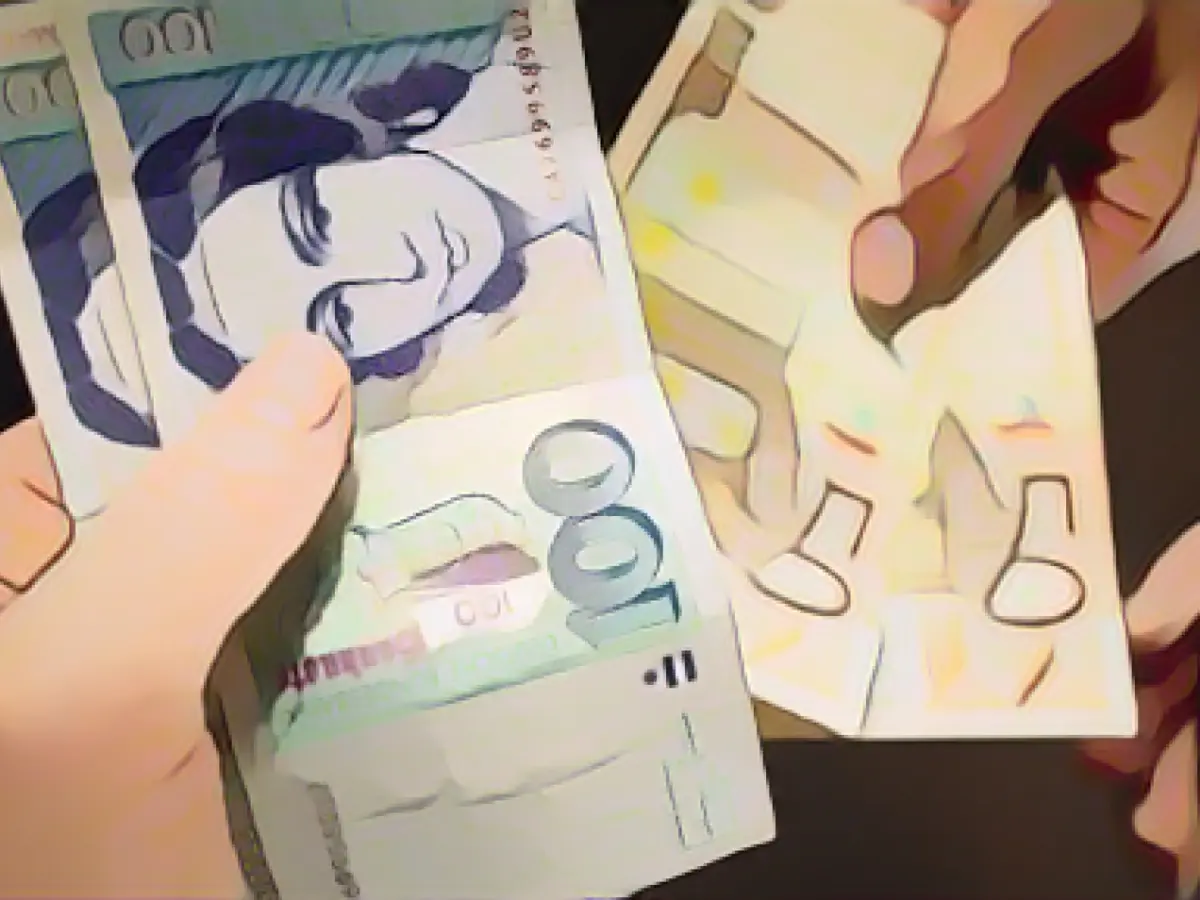Currency - People in Bavaria part with 10 million Deutschmarks
Germans are obviously attached to their money. For almost 22 years now, they have had euro bills and coins in their wallets for everyday use, but they still keep 5.7 billion Deutschmarks worth of old banknotes and 6.6 billion marks worth of coins. This year, however, a lot was exchanged - by far the most in Bavaria.
From January to the end of November, almost 17,000 citizens handed in a total of 10.3 million Deutschmarks for exchange at the branches of the Bundesbank in Bavaria. In comparison: 9.8 million marks were collected in North Rhine-Westphalia and 7.9 million in Baden-Württemberg.
"Especially when clearing out inherited houses and apartments, Deutschmarks are likely to be found," said Bundesbank board member Burkhard Balz. "We expect that a lot of D-Mark will also be exchanged in the coming years." Some of the old banknotes and coins may never be exchanged - for example, because they are in the hands of collectors.
Nationwide, the Bundesbank exchanged 53 million Deutschmarks for 27 million euros. The volume thus increased again. Two thirds of the exchange value was accounted for by banknotes, one third by coins. The currency, which was introduced in the three western occupation zones in 1948 and also in East Germany after reunification in 1990, was replaced by the euro in 2022 and can be exchanged free of charge for an unlimited period of time at all 31 branches of the Bundesbank or by post via the Bundesbank branch in Mainz.
Bundesbank on D-Mark circulation ECB on the exchange of national cash
Read also:
- A clan member is punished here
- Traffic lawyer warns: Don't talk to the police!
- Will he be convicted as Jutta's murderer after 37 years?
- He also wanted to kill his cousin
- Despite the widespread use of Euros, individuals in Bavaria still hold a substantial amount of abandoned D-Mark coins and banknotes, totaling 12.3 billion Deutschmarks.
- The Deutsche Bundesbank, located in Frankfurt on the Main, serves as the primary location for exchanging these obsolete D-Mark currencies.
- At the turn of the year, a significant amount of these old D-Mark coins and banknotes were exchanged in Bavaria, with approximately 10.3 million Deutschmarks being handed in for conversion.
- Collectors and numismatists might hold onto some of these outdated D-Mark coins as valuable historical artifacts, indicating that not all of these currencies will be exchanged.
- Germany, following the replacement of the D-Mark with the Euro in 2022, allows for the exchange of these outdated currencies at no cost at any of the Bundesbank's 31 branches or by mail through the Bundesbank's Mainz branch for an extended period.
Source: www.stern.de








